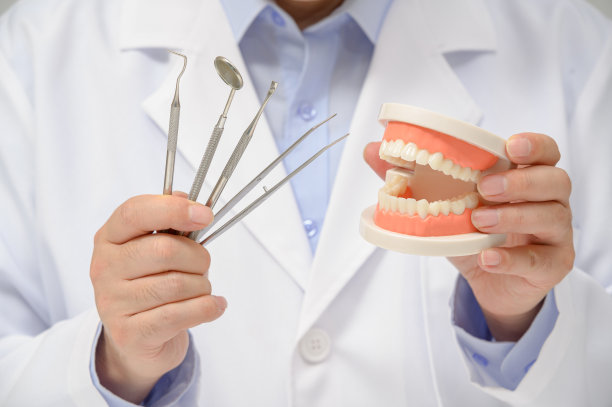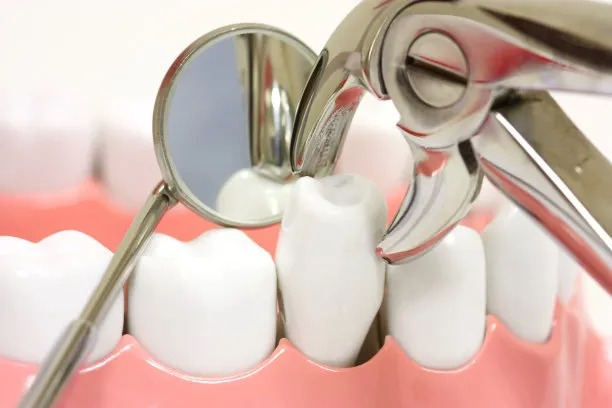Summary: The extraction of a tooth, while often necessary, is a process that requires precision and care. Professional dental care plays a pivotal role in ensuring the tooth is removed safely and effectively, thereby maintaining better oral health. This article will explore the importance of seeking professional help for tooth extraction by focusing on the risks of extraction complications, the significance of proper techniques, the benefits of post-operative care, and how expert dental advice can promote long-term oral health. By understanding these aspects, patients can appreciate why professional dental care is indispensable in achieving satisfactory outcomes during tooth extractions.
1. Risks of Complications During Tooth Extraction

Tooth extraction may seem straightforward, but it comes with inherent risks. Complications such as excessive bleeding, infections, and damage to surrounding teeth can occur without proper care. When performed by dental professionals, the likelihood of these complications is significantly reduced due to their expertise and access to sterile tools and environments.
Moreover, complications can often escalate into more severe health issues if not addressed promptly. For example, a simple extraction that goes wrong can lead to a serious infection requiring further procedures or antibiotics. Professional dentists routinely check for underlying conditions and potential complications beforehand, minimizing the risk of adverse events during the extraction process.
By trusting professionals for tooth extractions, patients can significantly enhance their odds of a smooth procedure, ensuring not only the removal of the problematic tooth but also maintaining their overall oral health.
2. Importance of Proper Techniques in Extractions
Proper extraction techniques are crucial in ensuring the tooth is removed with minimal discomfort and maximum efficiency. Professional dentists possess specific training and experience that allow them to assess the individual case comprehensively. They utilize various techniques based on the tooths condition, location, and the patients overall health.
For instance, a dentist may employ a simple extraction method for a tooth that has normalized mobility, whereas, for a more complex case involving impacted teeth, surgical extraction techniques are necessary. These nuanced approaches tailored to individual needs help to prevent fractures or breakage, often seen in amateur extractions.
Furthermore, dentists are trained to administer anesthesia effectively, ensuring that the patient feels no pain during the procedure. The precise identification of surrounding nerves and blood vessels is another skill that professionals possess, thus reducing the possibility of nerve damage or excessive bleeding. By using the right techniques and tools, dentists can achieve the best possible outcomes for tooth extractions.
3. Benefits of Post-Operative Care in Dental Health
Post-operative care is a significant component of the tooth extraction process, and professional dental care provides critical support in this phase. After the extraction, dentists provide patients with detailed aftercare instructions to mitigate pain, manage swelling, and prevent infections. This care often includes guidelines on diet, medication prescriptions, and signs of potential complications to watch for.
Moreover, professional follow-up appointments allow dentists to monitor the healing process, ensuring everything is proceeding as expected. This oversight can identify any emerging issues early, allowing for timely interventions to prevent serious complications.
Patients receiving professional care post-extraction report higher levels of satisfaction, as they feel supported and informed about their recovery process. With proper guidance and monitoring, individuals can return to their normal routines more swiftly, contributing to overall better oral health outcomes.
4. Long-Term Oral Health Benefits with Expert Dental Care
Beyond the immediate consequences of tooth extraction, professional dental care lays the groundwork for long-term oral health. Dentists not only address the extraction but also evaluate the broader context of a patient’s dental needs. They can recommend further treatments, such as implants or bridges, to replace lost teeth and maintain proper dental alignment.
Additionally, regular check-ups create a preventative framework for future dental issues. Dentists can educate patients about oral hygiene practices and lifestyle choices to safeguard against further tooth decay or the need for extractions in the future. This proactive approach fosters better overall oral health, extending beyond one isolated incident.
Lastly, the confidence gained from having a professional manage tooth extraction can encourage patients to seek regular dental check-ups, reinforcing the importance of consistent dental care throughout their lives.
Summary:
In conclusion, professional dental care during tooth extraction is essential for safe and effective procedures. It minimizes the risk of complications, ensures proper techniques are employed, provides sound post-operative care, and encourages long-term oral health. Seeking expertise not only addresses immediate dental problems but also establishes a foundation for a healthier future.
This article is compiled by Vickong Dental and the content is for reference only.
Vickong Dental
Vickong Dental is a large medical group established in Hong Kong in 2008 by professors from well-known medical universities in Guangdong and Hong Kong, as well as medical doctors from key national '985' universities (including Master's supervisors and senior professors). The chain of branches brings together expert dentists with PhDs and Master's degrees from Hong Kong and Mainland China, committed to providing high-quality dental treatment.
"Vickong Dental Practices the University Motto of 'Healing and Serving Society,' with a Stable Operation for Sixteen Years. It Has Been honored with Hong Kong Enterprise Leaders's Choice,' and is a Global Trusted Implant Center for the Nobel Implant System. Recommended by Hong Kong Metro Broadcast and Guangdong Television, it Serves Customers from Over Thirty Countries and Regions, Gaining the Trust and Favor of Citizens from the Guangdong-Hong Kong-Macau Greater Bay Area and Surrounding Cities.

Thousands of customers' unanimous praise
The most recognized and highly recommended dental service by customers in the Guangdong-Hong Kong-Macau Greater Bay Area
We Ensure You Receive Detailed Care and Attention Here
Hong Kong standards, Shenzhen prices, Your Trusted English-speaking dentists

Vickong Dental Medical-Grade Instrument Disinfection Process
Vickong Dental Medical-Grade Instrument Disinfection Process

Vickong Dental Chain: A Warm and Comfortable Environment for Treatment






Appointment Hours

Q&A
Why choose Vickong Dental?
Vickong Dental practices the university motto 「Medicine to Benefit Society」, with each branch bringing together highly qualified dentists with doctoral and master’s degrees from Hong Kong and the Mainland, and has maintained seventeen years of steady operation。Recipient of 「2024 Hong Kong Enterprise Leaders Brand」, 「2025 Hong Kong Enterprise Leaders Brand」, a Nobel Biocare Global Trusted Implant Center, and a brand recommended by Metro Radio Hong Kong and Guangdong TV。
To date, we have served customers from more than thirty countries and regions,earning exceptionally high word-of-mouth recognition and trusted recommendations from residents across the Guangdong-Hong Kong-Macao Greater Bay Area and surrounding cities
We have eight major branches in Zhuhai、Shenzhen,and a consultation and service assurance center in Hong Kong,so you can book a free consultation at any time for any questions,which is very reassuring.
If I do not accept the quotation after the CT scan, will I be charged??
No! As long as the actual treatment has not started, you will not be charged any fees.
Will there be any additional charges during the treatment process?
No, there won’t be any additional charges. Before treatment begins, we will clearly explain the treatment plan and its corresponding fees. Only after the patient agrees and signs the consent form will we proceed with the dental service.
Can I pay in Hong Kong dollars?
Yes. Vickong Dental accepts payment in Hong Kong dollars. The amount will be converted based on the exchange rate of the day, and the applicable rate will be clearly communicated to you in advance.
Can I reschedule my appointment at any time?
Yes. Please contact us via **WeChat** or **WhatsApp** as early as possible, providing your original appointment time and details, along with your preferred new date and time slot for rescheduling.













